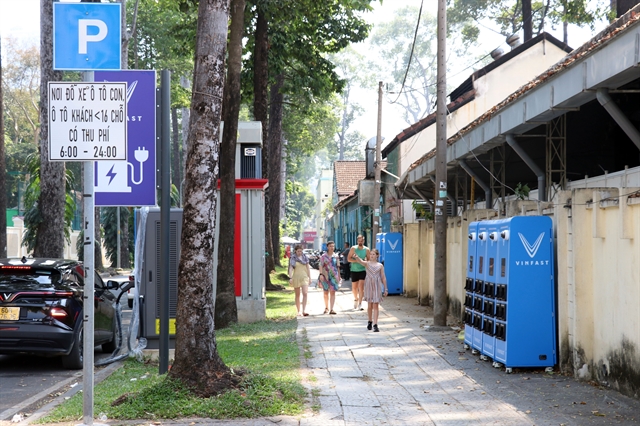 Expat Corner
Expat Corner

 |
| Working remotely from Bali. Indonesia is one of nearly 50 countries offering 'digital nomad' visas. AFP/VNA Photo |
Seán Nolan
HÀ NỘI — For years, there has been a clamour for a 'retirement visa' to be introduced in Việt Nam, but so far to no avail. However, calls for another type of visa are getting ever louder.
'Digital nomads' are people with jobs that are entirely remote and can be done from anywhere in the world.
More and more countries are offering visas that accommodate this kind of work, but the idea 'remote work' isn't a new one. If anything, it's been coming for a while.
In 1964, Arthur C. Clarke, a British scientist-fiction writer, made a prediction.
"It will be possible, perhaps only 50 years from now, for a man to conduct his business from Tahiti or Bali just as well as he could from London."
Funnily enough, he was only eight years off the mark.
This year, Bali officially introduced its digital nomad visa, joining nearly 50 countries around the world trying to cash in on the meteoric rise in remote work since the pandemic.
Though the stipulations vary from country to country, the idea is broadly the same; be employed in one country but live in another, earning your cash in one country but, vitally, spending it in another.
The advantages are obvious. Like tourism, money is brought into the economy from abroad. The difference is while a tourist may stay for a week, a digital nomad might stay for a year or more.
Of course, there are disadvantages, too, some of which have already become apparent in countries that have become digital nomad hotspots.
In cities like Mexico City and Lisbon, residents have complained that an influx of digital nomads has driven up rent prices, in much the same way that Amsterdam and Madrid, among others, were affected by the 'Airbnb' effect.
While this gentrifying aspect should be considered, arguably, it is already in effect. Many foreigners living and working in Việt Nam earn a lot more than their local Vietnamese colleagues, driving up rents in certain areas regardless.
The caveat with digital nomads would be that the money used to pay this increased rent would be added to the Vietnamese economy from abroad, unlike those on high-paying jobs in Việt Nam who are paid from the local economy.
Stringent rules would need to be implemented to ensure that the digital nomad visa could not be abused by taking jobs from local people or working illegally. However, given how effectively Việt Nam manages the visa and work permit processes for foreigners currently, I do not think this would be much of an issue.
With a work contract from a company stipulating they are happy for their employee to work abroad, and a stipulation on either a minimum salary or amount in the bank requirement, a digital nomad visa seems a certain way for Việt Nam to capitalise, and cash in, on a growing global trend. VNS